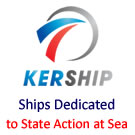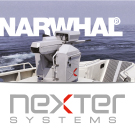|
|
|||
 CGI of the new workboats in action. Atlas Elektronik copyright. CGI of the new workboats in action. Atlas Elektronik copyright. |
|||
|
|
|||
|
Ranging in length from 11 to 18 metres, the boats will also perform other tasks including officer and diver training, Antarctic exploration and explosive ordnance disposal.
They are highly adaptable to operational demands thanks to their cutting-edge modular design elements. For example, if the Royal Navy wished to quickly redeploy a boat from hydrographic survey duties to support diving for explosive ordnance, the survey module can be quickly lifted out of the boat and replaced with the diving module containing the high pressure air required for that task. The contract will enable the design and construction of up to 38 boats as well as in-service support for the fleet for a further two years after the final boat is accepted. The first boat will enter service next year. The boats will all feature glass-reinforced plastic hulls and advanced twin waterjet propulsion. Despite their varying roles, they will all have the same steering and control system, reducing the need for training and making them simpler to operate. |
|||
New Contract for Workboat Fleet will support Royal Navy Aircraft Carriers and UK jobs
- Posted On











